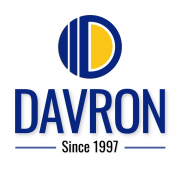With technology and job search habits constantly changing, today’s executive resumes need to convey more than just a list of accomplishments and general abilities. You need to embody your unique professional identity to position yourself as the best fit for a particular role or company.
So what do these changes mean for your resume in 2025?
To help you present your qualifications in a way that piques the hiring managers of 2025, we’ll share key resume trends, rejections, and expert insights from recruiters, hiring managers, and career experts. Read on to learn about best practices. competitive job market;

Photo: © raw pixels, 123RF free images
Two big resume trends for 2025
As trends in executive resumes change, we consider how personalization and authenticity can impact hiring teams. Here are two 2025 resume trends to keep an eye on.
1. Personalize and customize for different audiences
Recruitment professionals recognize that personalization is important in a competitive job market, especially as recruiters are acutely aware of the difference between a generic file and a resume customized to a specific opportunity. I agree.
To break through, your resume needs to provide context and speak to the exact value you bring to the position while clearly promising results.
Kelly Hrivnak, a technology and digital marketing recruiter, emphasizes that “overly general language needs to go away.” She cautions against relying solely on generative AI for resume writing, noting that while AI can help, there is no substitute for a personalized resume with unique accomplishments that reflect an applicant’s real-world impact. I’m doing it.
Resume writer Meg Applegate echoes this sentiment, advising senior professionals to “emphasize a clear promise of value.” [to help] You get over the file with the AI’s hand-me-down verbiage. ” Using common words and trite phrases will not resonate with hiring managers. A focus on personalization requires a shift from simply listing responsibilities to providing enough context for each outcome so that contributions feel specific and relevant.
According to career specialist Andri Garcia, it’s all about “context, context, context.” Candidates should share the “how” and “why” behind their accomplishments, rather than sticking to a dry description of the job description. Your background makes your work experience feel purposeful rather than perfunctory, giving potential employers a clear idea of your abilities.
It’s important to remember that recruiters aren’t just looking for numbers. They want impact. In this regard, senior clinical recruiter Patti F. recommends quantifying results in a meaningful way. “Tell me how you did something, your methods, the results.” Even if a candidate has extensive experience, a resume lacking these details will seem stagnant. may be visible.
2. Keep your content authentic and not AI-generated
While AI is so accessible that more job seekers are using it to write their resumes, experts agree that resumes should still be representative of the person. While AI tools may be helpful for first drafts and brainstorming, top resume experts caution against submitting a resume that comes across as too polished or impersonal. Masu.
Diana Alt, a career coach specializing in the technology industry, sees AI as a way to streamline resume creation, but also advises professionals to keep the final product authentic and unique. We encourage you to do so. “Smart people will take advantage of it,” she points out, advising job seekers to leverage AI to improve rather than define their resumes.
Similarly, Tabitha Kavanagh, vice president of recruiting and talent strategy, emphasizes the importance of creating a resume that “represents who you are.” She urges professionals to avoid clichés. She explains that phrases like “I’m a good communicator” are meaningless without concrete examples.
3 Important Resumes of 2025 “Things to Watch”
While 2025 brings new opportunities for job seekers to take advantage of advanced tools, there are some outdated resume practices that professionals should put aside. These “must-dos” and rejections not only make candidates less attractive, but can also unintentionally hinder their success in job hunting.
1. Resumes and generic files created by AI
Interestingly, AI is a big theme this year, both as a trend and as a pivot.
Relying too much on AI for resume writing can have negative effects. Resume writer Matt Tooker was blunt about this: “Resumes that are obviously written by AI or that show an over-reliance on AI need to be phased out.” Overuse of AI often leaves resumes feeling inauthentic and lacking the personal touch that makes candidates stand out.
Ed Han, a talent acquisition specialist, said AI-generated resumes are gaining popularity among recruiters because they are often perceived as “soulless, uninspired writing.” I see a growing sense of resistance to this. While AI tools can help organize your thoughts and gather ideas, the final product must reflect the candidate’s unique values. Executive resume writer Erin Kennedy explains why job seekers want their resumes to “read like everyone else’s,” even though their own career journeys are unique. states that you need to ask yourself:
AI-generated resumes can also have a hard time capturing subtle accomplishments and professional nuances of high-level candidates. Mark Hannan, a global industrial relations leader and former human resources director, suggests using AI sparingly and encouraging job seekers to treat it as a “resource” rather than a replacement for personal input. is advising.
2.Because of ATS
A widespread misconception that applicant tracking systems (ATS) automatically disqualify candidates has led many job seekers to tailor their resumes to machines rather than humans.
This widespread misconception has given rise to the trend of hollow “ATS-optimized” resumes. Diana Alt says structuring your resume solely to meet the ATS can be counterproductive, as it becomes overly mechanical and unappealing to recruiters. As Alt puts it, “outsourcing job search responsibilities” to an ATS often results in missed opportunities when resumes lack the depth and appeal needed to attract human readers. there is.
Recruiters also emphasize that the ATS is not the barrier to the job search that many assume. Damian Monell, head of recruitment and career coach, explains that ATSs act more like a “digital filing cabinet” than a decision maker. ATS can filter applications based on knockout questions, but “doesn’t scan resumes and doesn’t reject them based on scans.”
A good resume should appeal to both humans and systems, use keywords naturally, and focus on clear, human-centered accomplishments. Kristina Drobocky Baitoo recommends that job seekers “write for people” first, noting that while ATS compatibility is still important, it shouldn’t be prioritized over impactful content.
Remember that people, not algorithms, are the final decision makers in the hiring process.
3. Cookie cutter template
Templates from design platforms like Canva and Pinterest may look appealing, but resume experts caution against using generic designs or fancy formats.
Meg Applegate believes that these templates often fail to showcase a candidate’s personality. “Throw away cookie-cutter templates that don’t serve the experience,” she advises. This is especially true when two-column formats and rating skills visually detract from the presentation of relevant experiences and impacts.
Ed Han agrees: “If it came from Canva, delete it!” Many trendy templates prioritize aesthetics over usability. While graphics and design elements may look impressive, they often lack the clean, structured layout that experienced recruiters love.
Similarly, career coach Ana Goehner advocates for a simple, content-driven format. She emphasizes the importance of “eliminating boring resume formats created as Word documents (then PDFs)” with well-structured content that directly solves the problems outlined in the job description. Masu.
Flashy templates may look appealing, but they can defeat the main purpose of helping recruiters quickly understand your qualifications. “Simple is better!” Goehner also warns against overcomplicating your resume design, which can detract from the essential content. The clean, traditional layout (often created in MS Word) makes all important details easy to read and understand.
Does this mean you should completely avoid color and design on your resume? No, just keep it reasonable and collaborative.
3 Executive-Specific Resume Best Practices for 2025
An executive resume is a unique document that requires its own strategy. The best executive resumes are professional stories that tell “why it was important” rather than just “what you did,” in line with market demands and current business pressures. A well-written executive resume can help stakeholders better understand how past successes can lead to new and impactful achievements in the future.
1. You must show adaptability
Adaptability is becoming increasingly important for executives, as employers need leaders who can guide organizations through both growth and downturns. An adaptive executive resume should highlight examples of how you have navigated change, supported your team, and maintained company goals in a volatile environment.
Executive resume writer Virginia Franco highlights this, saying, “At the executive level, given the whiplash of the last few years, how candidates can support the company through its ups and downs is more important than ever. It has become important,” he said.
Meg Applegate also emphasizes adaptability, stating that “demonstrating that leadership is adaptable and human-centered while reinforcing the company’s value proposition and work culture will win resume day.” ” he added.
2. You need to demonstrate impact and results
Executives should focus on results-driven content, with a strong emphasis on quantifiable outcomes and proven ability to drive growth.
Metrics and milestones related to revenue, productivity, and innovation are critical to differentiating your expertise in a competitive job market.
Colleen Paulson, career consultant and resume writer, says: My best advice for business owners is to write with your audience in mind. Yes, you can use AI to generate ideas, but nothing destroys value like copied text that doesn’t emphasize your unique value proposition. ”
Similarly, hiring manager Caroline Regier says, “Job seekers should tailor their resumes to each application, highlighting relevant skills and experience.”
Executive resume writer Erika Rekamp also agrees that in today’s “wait and see” hiring environment, executive resumes provide estimated metrics such as “numbers, amounts, and percentages” to help you understand how you’re being evaluated. It states that companies need to reflect “influence and adaptability” by showing how they can do the same. Be flexible in changing your leadership style and priorities as business needs evolve. ”
3. Must demonstrate human-centered leadership and strategic influence
As we head into 2025, it’s important to demonstrate a people-centered leadership style along with strategic influence. This is not just about listing your accomplishments, but also about highlighting your leadership style, which is both visionary and empathetic.
Career coach John Sanchez advises: Leaders need to communicate vision along with results. Emphasizing strategic influence is critical to differentiation in a crowded market. ”
Career coach Ben Wyant further emphasizes: Therefore, executives lead people, and there needs to be an emphasis on how to do so in a human way. ”
Thanks to the experts who shared their resume insights for this article. To read the full comment and many more, check below. My posts on LinkedIn.
If you want a modern and effective resume for 2025, please contact us. I can help.





